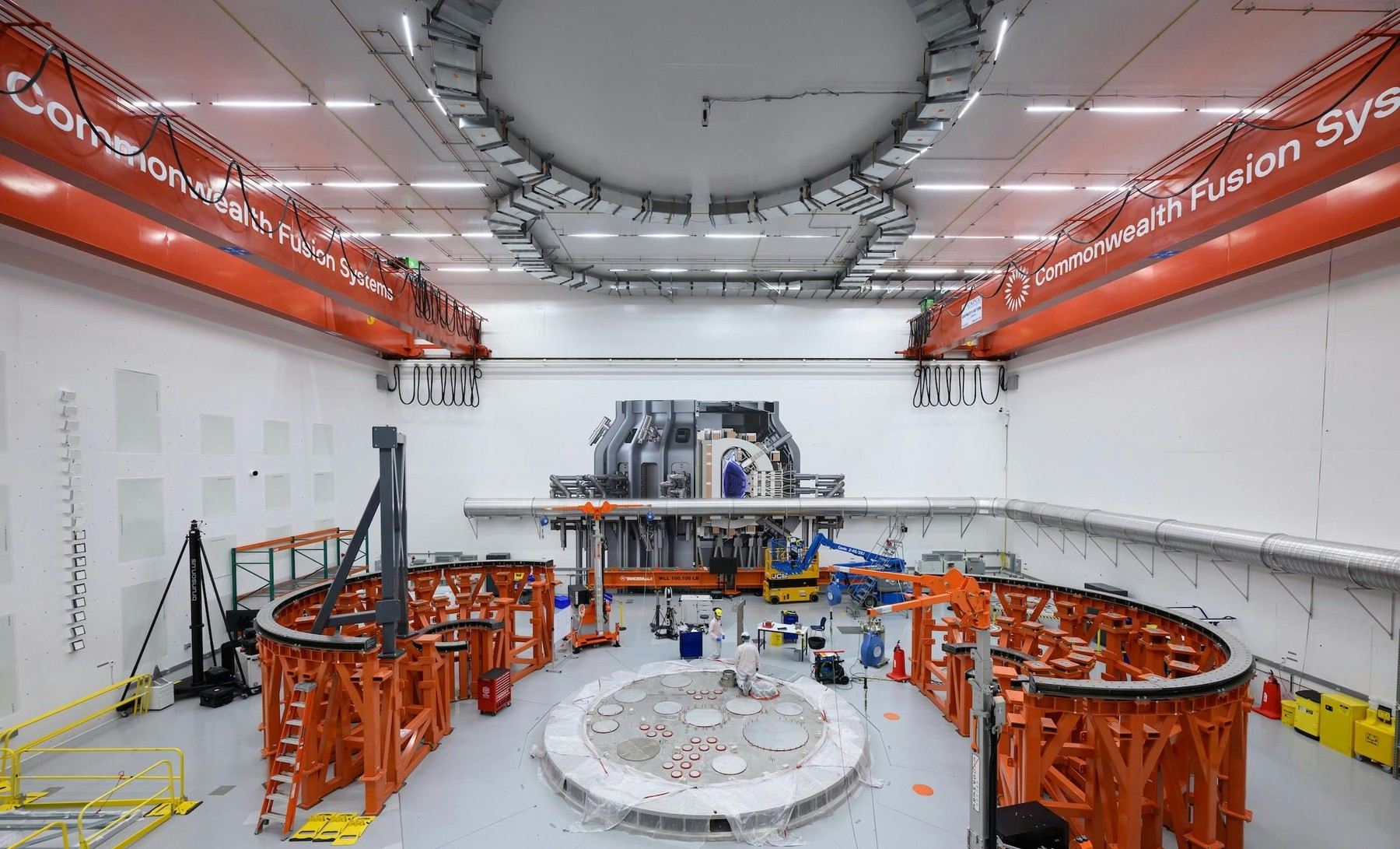Electric aircraft. Steaks made by microbes. Poo-troleum. The world of Greentech has seen its fair share of weirdness, and it’s often startups – unconstrained by bigger corporate responsibilities – that aren’t afraid to go there. But while not every concept is on that level of wackiness, the industry relies on innovation to thrive; one of its biggest challenges is transforming environmentally friendly technologies from the alternative into the mainstream, and for that – it needs both green tech companies and startups. Thousands of them now occupy every niche of the sector, hoping their invention secures them a part of the industry.
Green Technology: A Brief Overview
Greentech is a relatively broad term, referring to all technology designed to have a positive impact on the environment or negate the dismal impact humans have had. As opposed to cleantech, which focuses on minimizing environmental impact, Greentech aims to actively improve the environment, though the two frequently overlap and the terms are often used interchangeably. A third common classification, climate tech, describes technology aimed at reducing greenhouse gas emissions and therefore falls under Greentech. Since it’s so broad, Greentech encompasses several more fields that might not directly involve emissions reductions, such as wastewater management, waste reduction, smart green technologies (including using IoT – Internet of Things – and other methods to better keep track of resources or to create smarter power grids), and recycling and circular economy (whereby materials are recycled within the economic system).

The Growing Landscape of GreenTech Companies and Startups
Though environmental protection became a thing in the mid-19th century, Greentech has taken a while to catch up to traditional methods since it was largely neglected in favor of fossil fuels. As broader public awareness of climate change began taking off in the 1990s, Greentech arose alongside it, its technologies – predominantly renewable energy – gaining ground until the ‘cleantech bubble’ burst in the late noughties. More recently, however, the sector has been surging in importance as climate change and its effects become harder to ignore; as a result, governments and companies around the world now have goals to reduce their environmental impact, many of them aiming to reach net-zero emissions by 2050.
The situation creates a demand for innovations, which countless startups across the world have been working to fill. In 2022, there were 45,000 European and North American climate tech startups alone – and that’s not even counting Greentech’s other fields. However, the sector has seen a slowdown recently, with investments in climate tech plummeting compared to previous years (though it’s still on the rise in general). Many of the difficulties arise from the fact that it’s tricky to integrate such new technology with the legacy systems many companies and governments use – not to mention that it can be pretty expensive upfront. Startups tackle this problem by starting with small innovations, then scaling them up. However, since startup funding for the sector is still far off what is needed to meaningfully reduce emissions, there are still ways to go.

List of 10 Green Tech Companies to Watch in 2025
1. BYD (Auto Division)

- Location: China
- Founded: 2003
- Number of employees: 290,000 (for BYD as a whole, as of December 2022)
- Current funding level: $4.23 billion profit for 2023
- LinkedIn: https://www.linkedin.com/company/byd/
EVs aren’t the be-all-end-all savior to climate tech; they still create emissions through the mining of their batteries’ metals and the source of the electricity they consume. But they still fare considerably better than all-petrol cars. China’s BYD is, for the moment, their leader (though it’s constantly competing with the US’s Tesla); it produced 3 million cars in 2023, just over half of which were pure battery cars (as opposed to hybrids).
2. Tongwei Solar

- Location: China
- Founded: 1992
- Number of employees: 56,406
- Current funding level: $19.29 billion operating income in 2023
- LinkedIn: https://www.linkedin.com/company/tongwei-solar/
Tongwei, once a humble animal food company, is now the world’s biggest solar panel producer. This green tech company aims to achieve the production of 130 gigawatts (GW) worth of solar cells per year by the end of 2024 (as reported by Washington Post); for comparison, the US had a total of about 177 GW installed capacity.
3. Tesla

- Location: US
- Founded: 2003
- Number of employees: 100,000+
- Current funding level: $1.1 billion in net income for 2023
- LinkedIn: https://www.linkedin.com/company/tesla-motors
After singlehandedly bringing the electric car into vogue, Tesla now competes with BYD for top spot, beating the Chinese giant in sales for 2024’s first quarter. Tesla is also a leader in Battery Energy Storage Systems (BESS), which are vital to integrating renewable energy into existing infrastructure; its Megapack (designed for industrial use) and Powerwall (for residential) have helped it achieve a 15% market share.
4. Sungrow

- Location: China
- Founded: 1997
- Number of employees: 13,697
- Current funding level: $1.3 billion profit in 2023
- LinkedIn: https://www.linkedin.com/company/sungrow-power-supply-co-ltd
Mirroring the competition in EVs, China’s Sungrow and, once again, the US’s Tesla vie for the BESS crown. Though Tesla recently knocked Sungrow off its top spot, it still accounts for some 10% of the global market, so Wood Mackenzie. In addition to its storage systems, Sungrow also contributes to the solar and wind industries.
5. Antora Energy

- Location: US
- Founded: 2017
- Number of employees: 135
- Current funding level: Series B; over $230 million raised
- LinkedIn: https://www.linkedin.com/company/antora-energy/
Though the BESS scene is dominated by giants like Tesla and Sungrow, a swathe of green tech companies are focusing on another niche that’s been gaining traction as of late: thermal batteries, or storing energy in the form of heat. This is useful to industry, whose need for heat accounts for nearly 20% of global energy demand. Antora’s batteries ring in a 40% efficiency: 10% higher than the industry benchmark, so the US Department of Energy.
6. Goldwind

- Location: China
- Founded: 1998
- Number of employees: 11,000
- Current funding level: $184 million profit for 2023
- LinkedIn: https://www.linkedin.com/company/goldwind
China accounted for 65% of global wind capacity in 2023; while Denmark’s Vestas has the most turbines installed at 88,782, China’s Goldwind pockets the largest chunk of the global market at 14%. This green tech company has over 51,000 turbines with an installed capacity of 119GW, and claims to have avoided the release of 228 million tons of CO2 that way.
7. 4Ocean

- Location: US
- Founded: 2017
- Number of employees: 194
- Current funding level: unknown
- LinkedIn: https://www.linkedin.com/company/4oceanpbc/
At first glance, 4Ocean’s modus operandi is somewhat unorthodox. It sells paraphernalia like bracelets, beach chairs, stickers, and even sponges on its website; for each item sold, this green tech company removes a certain amount of trash from the ocean. It sounds like a non-profit, but it’s not; still, true to promise, 4Ocean has removed 35 million pounds of trash from the oceans as of March 2024.
8. Brimstone

- Location: US
- Founded: 2019
- Number of employees: less than 50
- Current funding level: over $60 million through seed, Series A, and a grant, plus a $189 million federal award
- LinkedIn: https://www.linkedin.com/company/brimstoneenergy/
Cement, the second-most used substance in the world after water, is also a major polluter; up to 9% of human-made emissions can be traced back to it. But since it’s clearly not going anywhere, Brimstone figured out a way to remove at least 60% of its emissions by tossing out limestone and replacing it with calcium silicate rocks; it also adds magnesium to the mix to mop up the remaining emissions. The result, so the company, is indistinguishable from conventional cement.
9. Climeworks/Carbfix


- Location: Switzerland/Iceland
- Founded: 2009/2007
- Number of employees: 450+/58
- Current funding level: $810 million (as of 2023)/total unknown
- LinkedIn: https://www.linkedin.com/company/climeworks/ / https://www.linkedin.com/company/carbfix/
They may be two separate green tech companies, but Climeworks and Carbfix now work in tandem to capture carbon and store it underground, preventing it from entering the atmosphere again. Climeworks specializes in capturing parts and recently opened the world’s largest designated plant in Iceland, designed to capture 36,000 tons of carbon from the air each year. Carbfix’s job is to inject the captured carbon deep into the Earth, where it reacts with the rocks and stays permanently stored. As of 2023, Carbfix has stored away over 90,000 tons of the stuff.
10. Pano AI

- Location: US
- Founded: 2019
- Number of employees: 45
- Current funding level: a total of $45 million raised
- LinkedIn: https://www.linkedin.com/company/pano-ai/
Wildfires, often fueled by climate change, don’t just devastate the areas they devour; they also release thousands of tons of CO2 into the atmosphere. But detecting, confirming, and responding to them early is tricky – even though this ‘determines whether or not a small flare-up becomes a raging inferno,’ so Pano AI. The company deploys a network of ‘360-degree, ultra-high-definition cameras’ that monitor fire-prone areas. If a young fire is detected by Pano’s AI system, it’s confirmed by human analysts before emergency services are alerted with exact times, locations, and imagery. As of 2023, Pano AI has around 100 cameras deployed in the US and Australia.
5 Green Tech Startups to Keep Your Eye On in 2025
1. Solugen

Solugen started as a ‘chance meeting’ in 2016 between cofounders Gaurab Chakrabarti and Sean Hunt. This green tech company is now barely a startup, valued at over $2 billion, operates at three sites in the US, and contributes to a plethora of industries. The US-based startup’s specialism is decarbonizing through chemicals, which it produces in factories called Bioforges. Cities powered by these, says Solugen, could become carbon-negative. But while the company has only built two so far, its chemistry solutions are already involved in several industries; for example, its mechanism of turning dextrose – corn sugar – into fossil fuel alternatives recently convinced the US Department of Energy to award the company a grant for a new Bioforge in Minnesota. Solugen also designs sustainable chemicals for a range of other industries, from beauty to concrete to cleaning. So far, it claims to have avoided the release of 90 kilotons of CO2 at scale; it now plans to continue building its portfolio of chemicals and create a ‘global network of Bioforges’.
2. NotCo

Following in the footsteps of now-prolific green food-tech startups Beyond Meat and Impossible Foods, Chile-based NotCo seeks to create tasty plant-based alternatives to animal-derived foodstuffs. But it’s got an extra trick up its sleeve: AI. To develop its products, NotCo consults its personal AI algorithm (named Guiseppe), which breaks down the molecular structure of animal products’ taste, smell, texture, and cooking effect and then suggests which plant products could replicate it. This often leads to somewhat unorthodox concoctions. Its milk, for example, features pineapple and cabbage to emulate cow’s milk; cabbage, under certain circumstances, releases a molecule similar to lactose (as described by YouTube Originals). NotCo also sells burger, chicken, ice cream, and mayonnaise alternatives, and is South America’s fastest-growing food tech company. It now sells some of its products in the US and Canada.
3. Jetti Resources

While other Greentech startups seek to find alternatives for environmentally damaging processes, Jetti focuses on making one of them – copper mining – a little less detrimental. Copper, which is the third most-consumed metal in the world, is crucial to countless technologies (including phones) because of its conducting properties and is also used extensively in construction. Mining it, however, is nasty work; not only does it pose a risk to the people doing it, but it also leads to deforestation and severe damage to nearby bodies of water. As described by Federal Metals, this is partially due to how inefficient the process is: 99 tons of waste is created for every ton of copper extracted, and it is the waste that contaminates the surroundings. US-based Jetti, founded in 2014, hopes to change this ratio by designing technology that can extract copper from lower-grade ores; while this does not directly solve the problem, it decreases its scope. Jetti’s tech has been proven at several mines and, as of 2023, is getting deployed at the massive El Abra mine in Chile, with over 20 more projects planned (as reported by Bloomberg).
4. Enpal

Enpal, founded in 2017, is a relatively young green tech company, but it’s barely a startup anymore. Just four years after its founding, the German firm became the biggest solar panel provider in Germany, servicing 12,000 customers (as reported by EU Startups). Now, the startup claims to have 65,000 customers, installs 2,000 solar panels monthly (according to World Economic Forum), and has become Germany’s first Greentech unicorn. Its concept is simple; it rents out the panels instead of selling them, offering customers a complete package of the product itself – including energy storage and smart software that makes the system easier to deal with – as well as installation and maintenance. This saves the customer the buckets of cash needed to own the product and the hassle of organizing it.
5. Arcadia

Creating Greentech is one thing, but getting people to use it is another – which is why software and Internet of Things (IoT) Greentech companies are increasingly important in the scene. One of these is US-based Arcadia, which was founded in 2014 ‘on the belief that everyone deserves access to clean energy,’ according to the company’s website. One of Arcadia’s key services is community solar power, wherein users – private or business – can sign onto local solar farms and pay less for their energy bills. But that’s not all this company offers. As founder Kiran Bhatraju explains, a major factor standing in the way of widespread clean energy is data – or rather lack thereof. Arcadia aims to solve this using its software service Arc, which sifts through the piles of data usually hidden in the depths of spreadsheets and reports and provides it to the user through an easy-to-use interface (as reported by Bloomberg). The software is also being used by a range of companies for energy data and carbon accounting.
Why Businesses Might Be Interested In GreenTech Startups?
For established businesses, working with Greentech startups is great for PR – and might save them a bucketload of cash, too. As climate change presses on, public perception of companies’ efforts to mitigate it is increasingly important. A McKinsey report found that established products that made sustainability-related claims outperformed those that didn’t in 68% of product categories. For newer, less established products, the difference was only 32%, suggesting that consumers are more pleasantly surprised by familiar brands going green. Meanwhile, investors funding renewable energy projects in the US can get juicy discounts on their taxes (as reported by The Conversation). It’s therefore unsurprising that bigger companies have already begun to work with startups, which allow them to incorporate Greentech without restructuring its entire business model. Examples include Jetti working with mining companies Capstone Copper and Freeport-McMoRan, and oil giant ExxonMobil partnering with GHGSat, who monitor methane and CO2 emissions from space.
Read also: 5 Renewable Energy Startups in 2025
Challenges and Opportunities for Green Tech Companies
At first glance, Greentech seems like a golden business to be in. It’s driven by a real-life crisis and is backed by governmental incentives and pressure from the public; this has led a swell in investment, including interest from other companies wanting to integrate Greentech into their practices. But it’s not always that easy. Many facets of Greentech involve lengthy and expensive development processes and are tricky to scale, making their business cases rocky. And while climate change was what spurned these efforts in the first place, its urgency is thwarted by investors who’d rather make money; this is why the bulk of investment flows to mature industries like renewables and EVs, though the cash might make a bigger environmental impact in less profitable niches.
The Future of Green Tech Companies and Startups
Several obstacles for Greentech companies and startups remain; the cost of entry will likely continue to be high, and the issues of insufficient funding and infrastructure to support widespread Greentech is still significant. Startups are also haunted by the so-called ‘valley of death’ that exists between early-stage growth stages and scaling up of business; it’s a sudden gap in funding, and many startups in the sector fail to leap over it. However, this might change as Greentech grows in environmental, political, and corporate importance. Until today, the valley of death had been a result of venture capitalist firms (VCs) being the main investors for such tech; now, other investing entities – governments, hedge funds, even corporations themselves – might dole out the big bucks and help green startups make the jump (as reported by MIT Technology Review). These lucrative deals don’t always originate from climate-focused groups but often come from other industries altogether – think steel, cement, and oil.
As a result, a possible solution for greentech startups struggling with the valley of death or massive upfront costs that come with the goal of revolutionizing an industry is not revolutionizing it in the first place, but rather being a small part of it, changing it from the inside out. Jetti Resources, Solugen, or Boston Metal – who design an electrochemical alternative to steel blast furnaces – are key examples of this approach. This way, corporations can use Greentech without changing their entire setup, while green companies get a foot in the door, integrating their methods into existing industries one tech at a time. Given the sector’s importance, the demand for startups’ solutions will likely remain high. Larry Fink, CEO of investment firm BlackRock, notes that investors’ demand for Greentech is growing since chasing net-zero by 2050 will require changes in virtually every industry. As such, he predicts that the next 1,000 unicorns (startups worth over $1 billion) will be focused on climate tech (as reported by CNBC).
Read also: Top 11 Climate Tech Companies in 2024
Bottom Line
In general, Greentech companies’ and startups’ potential for change lies in their numbers; most of the impacts brought about by them come gradually, with countless companies’ inventions increasingly getting integrated into a range of industries. There are, of course, exceptions – like Tesla – and a handful of newer companies could become giants too. But not every startup will revolutionize an industry by itself; many might instead remain a spoke in the wheel of bigger industries trying to integrate Greentech. While this isn’t quite as radical, it makes it easier for stubborn industries to accept the change. And given that the goal of much Greentech is to become the norm, not the alternative, this slow-and-steady strategy makes sense.
But time is ticking, and the 2050 net-zero deadline looms closer by the day. Meanwhile, green companies’ investments are still insufficient to reach them. So while the leisurely approach of integrating Greentech is compatible with industry, will it keep pace with the climate itself?








